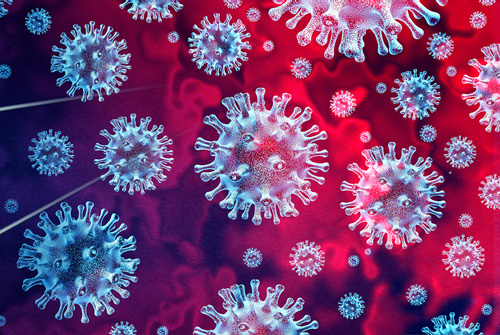The Covid-19 is back to its killing ways in Pakistan after a long break as the it killed three people and infected another 55 during the last 24 hours, showed the figures released by the National Institute of Health (NIH) on Wednesday morning. The death toll in the country climbed up to 30,623 while the number of total infections now rose to 1,573,452 after adding the fresh 55 cases.
During the last 24 hours (Tuesday), 8,815 tests were conducted throughout Pakistan whereas the positivity ratio stood at 0.62 percent. The number of patients in critical care was recorded at 45. Climate change may boost Arctic ‘virus spillover’ risk
A warming climate could bring viruses in the Arctic into contact with new environments and hosts, increasing the risk of “viral spillover”, according to research published Wednesday. Viruses need hosts like humans, animals, plants or fungi to replicate and spread, and occasionally they can jump to a new one that lacks immunity, as seen during the Covid-19 pandemic.
Scientists in Canada wanted to investigate how climate change might affect spillover risk by examining samples from the Arctic landscape of Lake Hazen. It is the largest lake in the world entirely north of the Arctic Circle, and “was truly unlike any other place I’ve been”, researcher Graham Colby, now a medical student at University of Toronto, told media.The team sampled soil that becomes a riverbed for melted glacier water in the summer, as well as the lakebed itself — which required clearing snow.—INP










